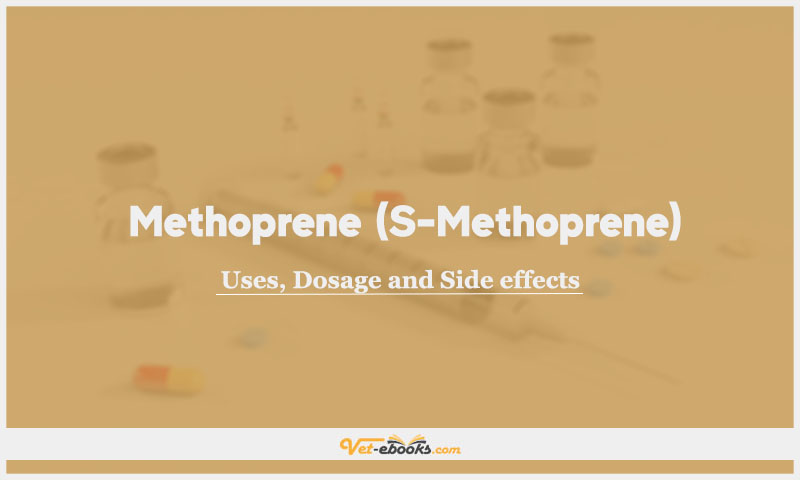Methoprene (S-Methoprene) In Dogs & Cats: Uses, Dosage and Side Effects

Overview
- Juvenile hormone analogue that hinders the progression of larval development.
Uses of Methoprene (S-Methoprene)
- Management and mitigation of flea infestations caused by Ctenocephalides canis and C. felis.
- Additionally, it explores the potential effectiveness of environmental sprays in combating house dust mites, specifically Dermatophagoides farinae and D. pteronyssinus.
Dose of Methoprene (S-Methoprene) in Dogs and Cats
Dogs, Cats:
- Fleas: 1 pipette per animal monthly according to body weight.
Drug Dosage Calculator
You Should Give:
Side Effects of Methoprene (S-Methoprene) in Dogs and Cats
- Local pruritus or alopecia may occur at the site of application.
- May be harmful to aquatic organisms.
Contraindications of Methoprene (S-Methoprene) in Dogs and Cats
- None (but see entries for other active agents).
Some Notes:
- In order to address flea infestations, it is recommended to provide topical medications, specifically spot-on products, to all cats and dogs that come into touch with one another on a monthly basis.
- It is not advisable to engage in bathing within a time frame of 48 hours prior to and 24 hours subsequent to the administration of a topical substance.
- The recommended minimum interval for therapy is four weeks.
- This intervention can be utilised in females who are pregnant or nursing.
- The affected household should be treated as instructed using a spray while taking precautions to avoid contact with birds and fish.
Tip
Do You Want To Increase Your Veterinary Knowledge and Practical Skills?
You Can Now Browse and Download +3000 Books For Veterinary Professionals & Students Online.
Download Veterinary Books




















